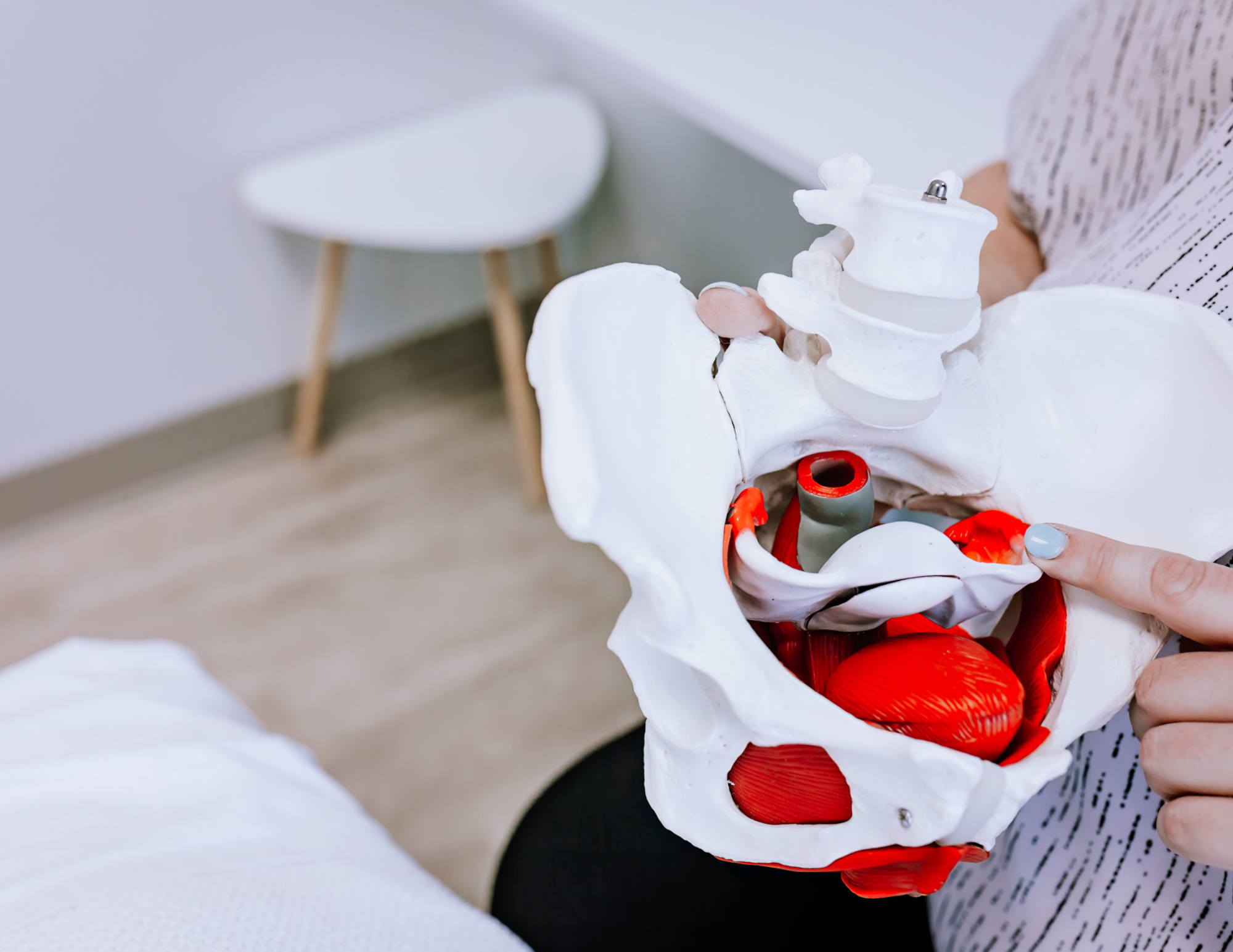
7 Reasons You Should Visit a Pelvic Health Physiotherapist
Pelvic health physiotherapy is a unique, and often overlooked aspect of physiotherapy care that has a long list of benefits! It was once the perception that it was reserved only for new parents who have just given birth and are recovering in the postpartum period. While this is a population that we can treat, we have a great deal more to offer. Some of the conditions we can treat include (but are not limited to):
Urinary Incontinence
Have you given up on jumping jacks, or (gasp) trampolines? Do you scan any public venue to be sure you know where all the washrooms are? Do you limit your social engagements due to fear that your bladder will ruin the fun? Whether you suffer from the occasional dribble with a cough or sneeze, or you lose complete control of your bladder in a mad dash to the toilet, your pelvic floor could be involved. Though these symptoms are common, it’s not something we need to settle for as our normal. A pelvic health physiotherapist can help to discuss your symptoms and determine a pelvic health rehabilitation plan could be appropriate.
Bowel Dysfunction
Do you suffer from constipation, or loose, unpredictable, or incontinent bowels? Whether you are diagnosed with a gastro-intestinal condition such as IBS, Crohn’s, etc. or you have learned to live with a particularly inconsistent bowel routine, pelvic health physiotherapy could help. The pelvic floor muscle group extends from the pubic bone in the front of the pelvis, right to the tailbone. This means these muscles sit right next to, you guessed it, the descending colon. One muscle in particular loops right around the rectum. If these muscles aren’t functioning properly, this could contribute to your toilet troubles. A pelvic therapy specialist can help by addressing muscular tension in the pelvic floor muscles group and discuss proper positioning and elimination techniques that reduce pressure and straining on the pelvic floor.
Pelvic Organ Prolapse
This is a condition in which the pelvic organs (aka. Bladder, bowel and reproductive organs) begin to lean on the walls of the vaginal canal. Depending on the degree of the prolapse, you may experience a constant or occasional heaviness, or bulging feeling in the vaginal canal or at the opening. There are many reasons this can occur, and a pelvic health physiotherapist can assess the degree, and potential source of the prolapse. We can then help to design rehabilitation plan to see if we can functionally improve your symptoms or recommend supports that could help.
Pain with Intercourse
Anyone experiencing pain with intercourse can benefit from pelvic health physiotherapy. This can occur in intercourse with or without vaginal penetration. There are a number of contributing factors that are associated with this type of pain including pain of the pelvic floor muscles, health of the vulvar and vaginal tissues, and the nerves associated with this region. Your pelvic health physiotherapist will take time to discuss your symptoms and work with you to determine what is causing your pain and come up with rehabilitation plan to address your concerns.
Menopause Support
Many changes occur in a person going through menopause, as we all know. The change in hormone levels can also sometimes create symptoms in your pelvis. Vaginal dryness, pain with intercourse and changes in bowel and bladder function are all things we can see, linked to your pelvic health in menopause. Yes, we can help there too.
Persistent Pelvic Pain
Persistent pain can range from pain with periods, painful symptoms associated with endometriosis, PCOS, interstitial cystitis, just to name a few. A pelvic health assessment can help to determine if muscular or connective tissue concerns could be contributing to your symptoms and come up with a treatment plan with you.
Persistent Orthopedic pain
Do you have a long history of low back, SI joint or hip pain, that just doesn’t seem to get better? Perhaps there is a pelvic floor involvement. When treatments addressing the structures outside of the pelvis only go so far, sometimes that means it’s time to look at the muscles and connective tissue INSIDE the pelvis. We can use a variety of strategies, including manual therapy techniques, muscle re-education and functional home exercise. By using these strategies to reduce the pull of tight pelvic floor muscles on the inner aspect of the bony pelvis and improve the overall function of the pelvic floor muscle group we can help to reduce these pain symptoms.
If any of these conditions sound like something you’re experiencing, it could be beneficial to book a pelvic health physiotherapy assessment. Have more questions? Let’s book a free 15-minute consultation and see if we can help.



.png)